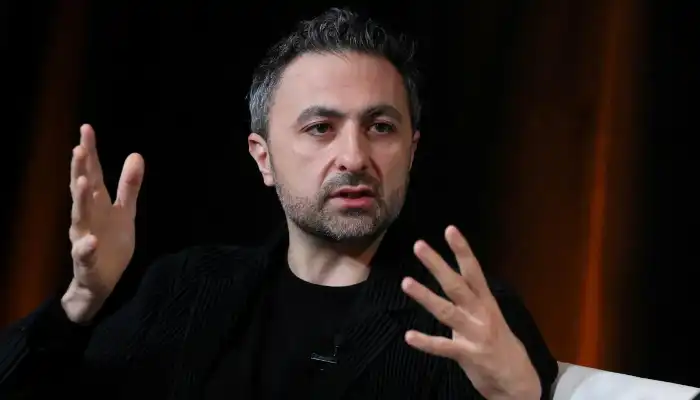The landscape of artificial intelligence (AI) is continually changing, with the technological giants fiercely contesting to be ahead. Recently, Microsoft has made a strategic move that can have significant implications on its future in AI. The company’s new head of Microsoft AI will be Mustafa Suleyman, who was one of the co-founders of DeepMind (now owned by Google). This post looks at what led to this move, examines some instances when the company tried out AI before, and investigates the reasons why Suleyman was selected as its leader.

Understanding the Significance of AI Leadership
In today’s world, where technology drives innovation through AI-based products and services, a competent leader who heads all its AL activities is very important. This occurs because:
- Strategic Direction: A good leader should articulate the vision that guides a firm’s approach towards its artificial intelligence efforts.
- Technological Innovation: Their research and development take charge of the production of high-tech systems based on artificial intelligence.
- Talent Acquisition and Retention: With competencies in this field being highly sought after everywhere, including in-house skills are required for working in such companies.
- Industry Collaboration: Strong leadership enables cooperation with other companies doing similar research to fast-track development in this area.
Having an imaginative innovator like Suleyman can greatly influence how well Microsoft competes against Google, Amazon, and other principal players within the sector of Artificial Intelligence.
A Look Back: Microsoft’s AI Journey
Microsoft has been involved with AI research and development for many years now. Below are a few highlights:
- Early AI Projects: The software giant began exploring artificial intelligence during the 1990s through projects like Clippy’s Paperclip Assistant on Office Suite.
- Microsoft Research: It also has a division called Microsoft Research that focuses on basic applied science, including Artificial Intelligence.
- Recent Acquisitions: These include Bonsai (industrial automation) and Semantic Machines (natural language processing).
These actions indicate that Microsoft has been consistent in its AI commitment. However, the appointment of Suleyman suggests a renewed focus on integrating AI more deeply across its entire product and service portfolio.
Meet the New AI Chief: Mustafa Suleyman and His AI Prowess
This is why he is an asset to Microsoft:
- DeepMind Co-Founder: He was among those who co-founded DeepMind, a research laboratory known for its transformative contributions in areas such as machine learning and game-playing AI.
- AI Expertise: He has a proven track record of leading and managing high-caliber AI research teams.
- Focus on Real-World Application: Suleyman believes in developing AI solutions with real-world applications, which aligns perfectly with Microsoft’s goals.
Suleyman’s comprehension of high-level research on AIs that are on the cutting edge, as well as his emphasis on practicality, make him particularly suitable to lead MS’s AI development efforts.
Microsoft’s strategic move might disrupt this field. Under his leadership, Microsoft will make great strides towards developing and integrating artificial intelligence into its products and services. The outcome, however, depends on how this decision turns out, but one thing is clear: the contest for supremacy of Artificial Intelligence is getting tougher by the day, and Microsoft intends to be a winner among equals.
A New Direction for Microsoft AI?
Microsoft’s AI strategy could undergo a significant shift with Suleyman at the helm. Here are some things that might happen:
- Consumer-Facing AI: Suleyman’s experience developing useful AI applications may lead to a change in the focus of Microsoft. This means that we can expect Microsoft to start emphasizing on incorporating AI into everyday products such as Bing search and the Edge browser, thereby making them more intelligent and user-friendly.
- Collaboration over Competition: DeepMind has a reputation for collaborating on open-source research. If Suleyman were to be at the forefront of the Microsoft AI movement, it would mean more collaboration between them and other tech giants or research institutions, hence fast-tracking AI development.
- Responsible AI: DeepMind has been able to navigate ethical concerns around the development of artificial intelligence. Suleyman will underscore responsible practices related to artificial intelligence within Microsoft, which will ensure ethical creation as well as the deployment of artificial intelligence solutions.
DeepMind’s Expertise: A Microsoft Advantage
Suleyman did not come empty-handed. The expertise DeepMind has acquired in fields like reinforcement learning and machine learning can revolutionize the future of Microsoft’s Artificial Intelligence:
- Improved Capabilities: With its advanced algorithms, DeepMind’s capabilities could considerably enhance the performance of existing Azure Cognitive Services by Microsoft as well as productivity suites.
- Pioneering Grounds: The ground-breaking research by DeepMind may unlock several potential areas for advancing general artificial intelligence (AGI) and AGI safety, putting them right at the forefront of artificial intelligence innovation.
- Talent Acquisition: There is already a pool of skilled researchers on artificial intelligence from which they could poach, thereby strengthening their team.
Microsoft has relentlessly underscored its dedication to responsible and impactful AI development. Suleyman’s appointment is a perfect fit for this vision. His focus on practical applications and ethical considerations sets Microsoft up as a potential front-runner in the field of developing AI solutions with societal benefits.
Conclusion
The appointment of Mustafa Suleyman by Microsoft indicates its audacious move towards becoming an AI leader. There is high potential for breakthroughs in AI capabilities, responsible development practices, and a more collaborative industry landscape. This appointment marks a turning point in the history of AI, and it seems that Microsoft may be set to make the biggest impact in years to come.


